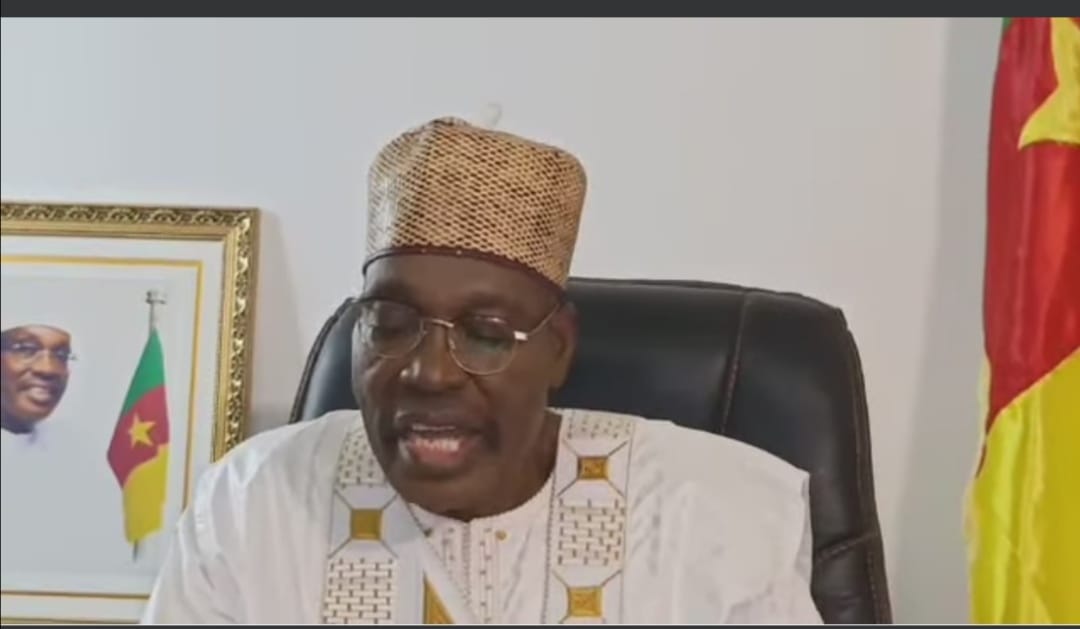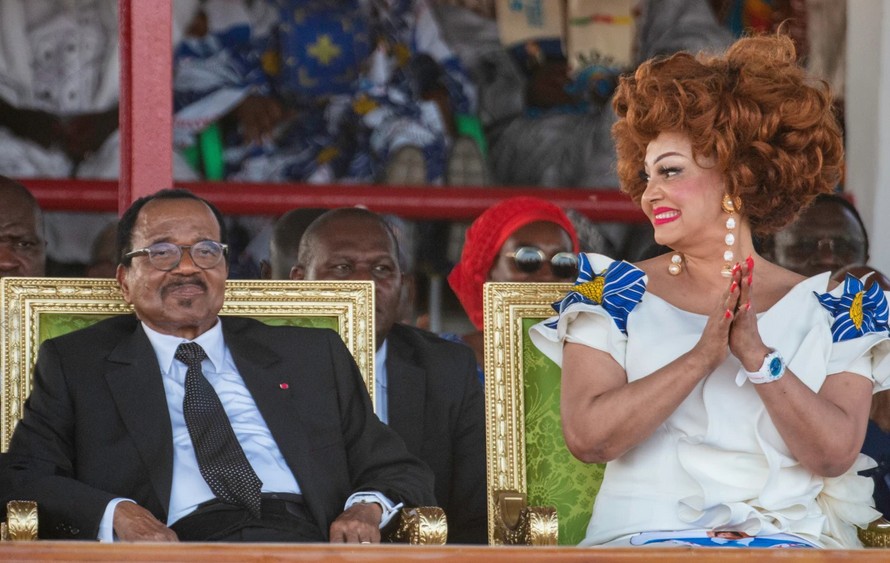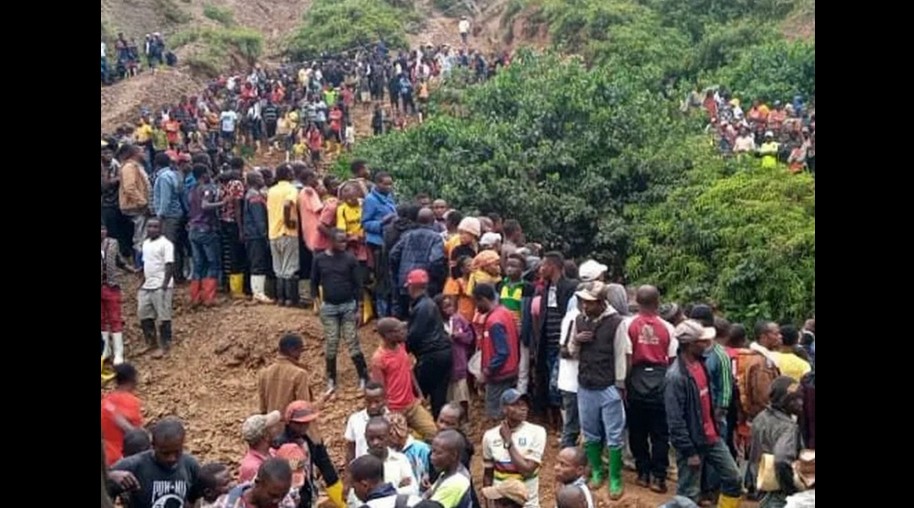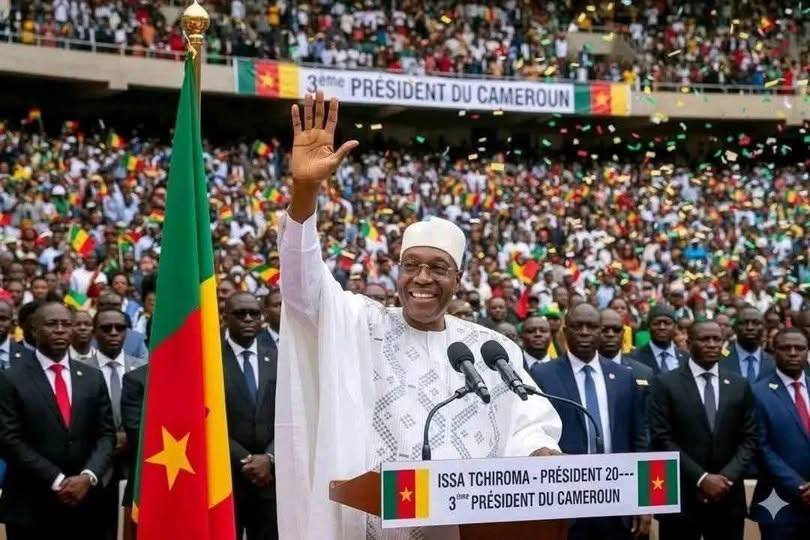Politics
- Details
- Politics

Cameroon’s political trajectory shifted sharply on Monday after President-Elect Issa Tchiroma Bakary released a sweeping Letter to the Nation, positioning himself not as an opposition figure contesting results but as “the servant of a sovereign people” whose mandate cannot be nullified by decree. The message — historical, emotive and confrontational — arrives just days after Paul Biya’s controversial inauguration for an eighth term and has already triggered ripples through domestic and international circles.
Within hours, reactions poured in across the country, from Bamenda to Maroua, expressing fatigue with the old order and a renewed appetite for decisive leadership. As one comment put it: “Cameronians are ready to fight, but they need strong and determined leadership and superb coordination.”
Combined with DW Afrique’s growing focus on the emerging parallel government dynamic, new endorsements, and contradictory signals from Washington, Tchiroma’s letter has become the centrepiece of a new political moment.
## “Your Decision Is Irreversible”: Tchiroma’s Declaration of Sovereignty
In his national address dated 17 November 2025, Tchiroma frames the election not as a dispute, but as a historic rupture:
“On October 12, you cast your ballots like one lays a white stone on the path of destiny… The truth from the ballot box cannot be erased by decree.”
He places the current crisis within a century-long continuum — from UPC martyrs to the 1992 “democratic hold-up,” to the imprisonment of Maurice Kamto in 2018. According to him, 2025 is not simply another election year but the moment when “history stops moving in circles” and begins its forward march.
Tchiroma accuses state institutions of militarisation, alleging that ELECAM, the Constitutional Council, and segments of the security services have become “instruments of confiscation rather than guardians of law.”
He insists on calm resistance, urging supporters to “resist with dignity” and avoid the “trap of violence,” emphasising unity across regions, religions, generations and the diaspora.
## DW Afrique: The Rise of a Parallel Political Order
The timing of the letter coincides with a high-visibility segment on DW Afrique’s Sahel+, which described the “Issa Tchiroma phenomenon” as impossible to ignore.
The program noted:
-
his growing coalition of intellectuals, clergy, lawyers and civic leaders,
-
the possibility of a parallel government structure consolidating outside Yaoundé’s orbit,
-
and how Tchiroma’s movement is reshaping political conversations across Central Africa.
DW Afrique posed two questions now circulating across the region:
– What is driving the surge in support for Tchiroma?
– Will the momentum hold?
Tchiroma’s “Letter to the Nation” now answers those questions with an assertive narrative of legitimacy and historical continuity.
## Washington’s Mixed Messages: Rubio Congratulates Biya as U.S. Memories Reopen
In a surprising move, U.S. Senator Marco Rubio publicly congratulated Paul Biya on his inauguration — a message that contrasts sharply with past State Department positions that openly criticised Cameroon’s electoral credibility.
Many Cameroonians still recall the 2018 statement by Acting Under-Secretary Heather Nauert, which warned of:
-
irregularities “before, during and after the election,”
-
a framework lacking fairness, separation of powers and impartiality,
-
and urgent need for dialogue, especially in conflict-affected regions.
Rubio’s recent congratulatory note is seen by many as political convenience, not continuity of principle.
Within this confusion, Tchiroma’s camp argues that international actors are themselves divided — and that Cameroon’s legitimacy crisis cannot be outsourced to foreign capitals.
## A New Appointment Signals Structure: Alice Nkom Becomes Press Secretary
In a move widely praised across civil society, Tchiroma on 17 November appointed Alice Nkom — pioneering human-rights lawyer and long-time defender of political prisoners — as his Press Secretary.
Nkom, known for her integrity and fearless advocacy, brings legal gravitas and moral authority to the emerging Tchiroma bloc. Her appointment signals the beginning of an organisational structure consistent with the “parallel government” described by DW Afrique.
Analysts say Nkom’s involvement gives Tchiroma three immediate advantages:
-
Credibility on constitutional and human-rights questions
-
Visibility in global human-rights networks
-
A disciplined communication arm capable of countering state narratives
## Reactions from Across the Country
Comments under the letter reflect deep polarisation — and deep mobilisation:
-
“Now is the time.”
-
“The spirit of freedom is at the corner.”
-
“Danger is coming for those who destroyed this country.”
-
“Ameen, Ameen.”
-
“The time is now!”
Sceptics exist, including those who accuse Tchiroma of past contradictions. But what is undeniable is the volume and intensity of responses — far higher than earlier campaign statements.
This moment, as DW Afrique noted, is qualitatively different.
## An Emerging Legitimacy Battle
What is now taking shape is a dual-track political reality:
Track 1:
A formal state apparatus centred around Paul Biya’s oath of office — contested, ageing, institutionally inert, but still holding coercive power.
Track 2:
A rising political force anchored in electoral claims, civil-society endorsement, and a narrative of historical justice — with Issa Tchiroma Bakary as its emblem.
Whether this becomes a transitional movement, a full alternative government, or a long-term opposition platform remains to be seen. But the energy, structure, and momentum are visibly shifting.
Conclusion
Tchiroma’s Letter to the Nation is not just a speech — it is the clearest declaration yet that Cameroon’s political centre of gravity has moved. Biya may occupy the palace, but the public conversation, the moral argument, and the symbolic authority are already elsewhere.
With DW Afrique amplifying the narrative, the international community divided, and civil society aligning behind figures like Alice Nkom, Cameroon enters a new phase of dual legitimacy — one written in ballot boxes and one proclaimed through ceremony.
Which of these two forces will define the nation’s future remains the defining question of the post-2025 era.
- Details
- News Team
- Hits: 711
- Details
- Politics

The political map of Cameroon is shifting beneath the regime’s feet. What began as a challenge to a fraudulent election is rapidly transforming into a dual-government reality, with President-elect Issa Tchiroma Bakary solidifying the architecture of an alternative presidency while Paul Biya clings to ceremonial authority through repression and silence.
- Details
- News Team
- Hits: 1287
- Details
- Politics

DOUALA, Nov. 17, 2025 — Cameroon Concord.
The October 12 presidential election was supposed to reset Cameroon’s political clock. Instead, it has plunged the country into its most dangerous stand-off in decades, fusing old grievances with fresh anger over what many citizens and civic platforms openly describe as a stolen victory.
- Details
- News Team
- Hits: 902
- Details
- Politics

A bridge at the Kalando copper and cobalt mine in Mulondo, Lualaba province, collapsed on Saturday, killing at least 32 people and injuring several others, according to regional authorities and a government mining agency report.
- Details
- News Team
- Hits: 392
- Details
- Politics

[YAOUNDÉ, Nov 12 – Cameroon Concord] — The dust of Cameroon’s disputed election has barely settled, yet the regime’s arrogance already seeps through the cracks. A leaked document, allegedly drafted inside the Presidency, lists the “new government” Paul Biya planned to unveil three days after his swearing-in. It reads less like a renewal and more like a reward chart for loyalty—proof that the so-called victory was stitched together long before a single vote was counted.
- Details
- News Team
- Hits: 991
- Details
- Politics

YAOUNDÉ, Nov 12 —
A collective of Cameroonian intellectuals and artists has published a searing op-ed in the French daily Libération titled “Cameroun : ce silence de la communauté internationale qui étouffe une nation.”
The group denounces what it calls “the deafening and culpable silence of the international community” as the country endures turmoil following the October 12 presidential election.
- Details
- News Team
- Hits: 970
Biya Article Count: 73
# Paul Biya and his regime
Explore the political landscape of Cameroon under the rule of Paul Biya, the longest-serving president in Africa who has been in power since 1982. Our Paul Biya and his regime section examines the policies, actions, and controversies of his government, as well as the opposition movements, civil society groups, and international actors that challenge or support his leadership. You'll also find profiles, interviews, and opinions on the key figures and events that shape the political dynamics of Cameroon.
Southern Cameroons Article Count: 548
.# Southern Cameroons, Ambazonia
Learn more about the history, culture, and politics of Ambazonia, the Anglophone regions of Cameroon that have been seeking self-determination and independence from the Francophone-dominated central government. Our Southern Cameroons section covers the ongoing conflict, the humanitarian crisis, the human rights violations, and the peace efforts in the region. You'll also find stories that highlight the rich and diverse heritage, traditions, and aspirations of the Southern Cameroonian people.
Editorial Article Count: 884
# Opinion
Get insights and perspectives on the issues that matter to Cameroon and the world with our opinion section. We feature opinions from our editors, columnists, and guest writers, who share their views and analysis on various topics, such as politics, economy, culture, and society. Our opinion section also welcomes contributions from our readers, who can submit their own opinions and comments. Join the conversation and express your opinions with our opinion section.
